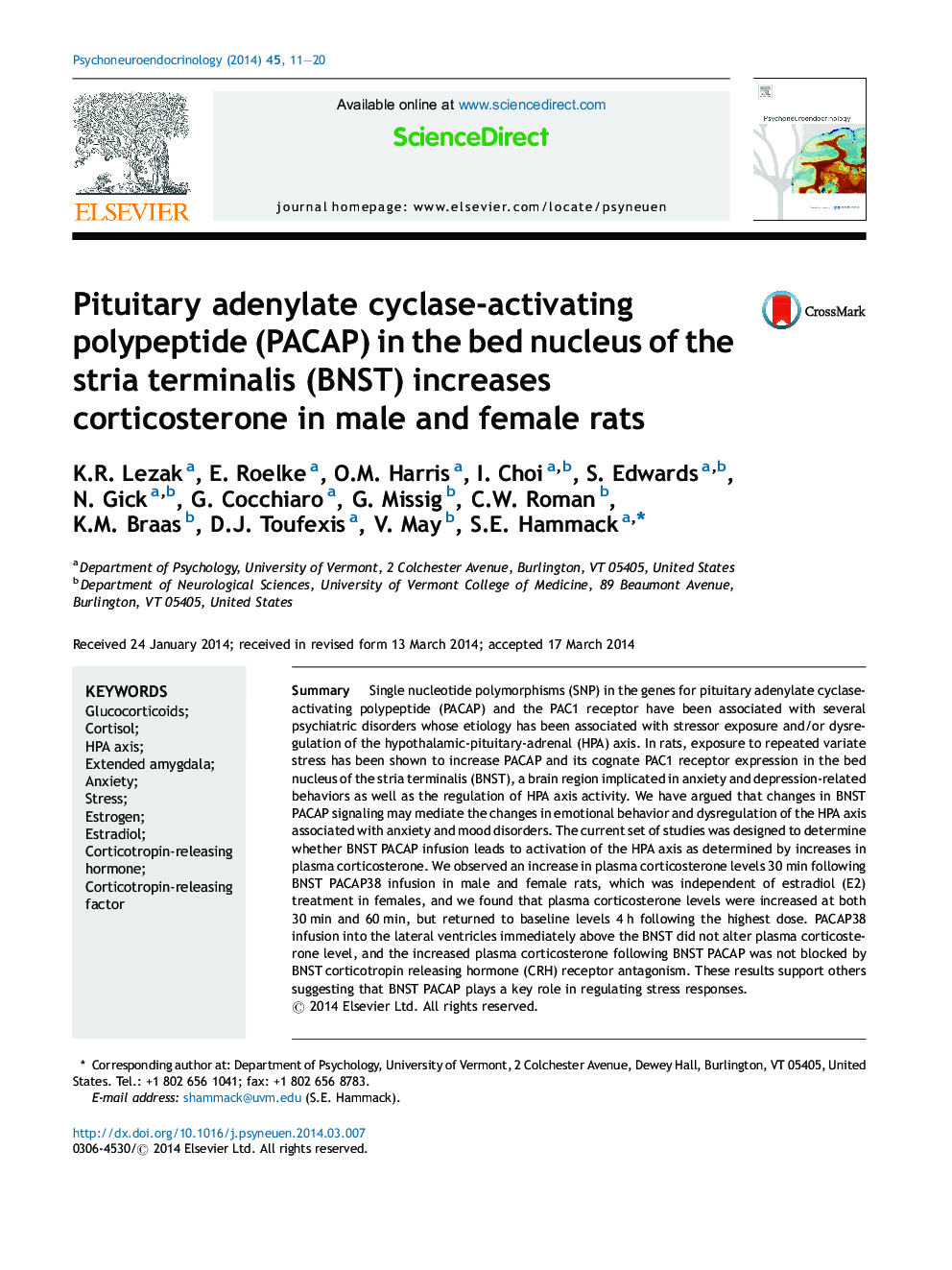| کد مقاله | کد نشریه | سال انتشار | مقاله انگلیسی | نسخه تمام متن |
|---|---|---|---|---|
| 336354 | 547118 | 2014 | 10 صفحه PDF | دانلود رایگان |

SummarySingle nucleotide polymorphisms (SNP) in the genes for pituitary adenylate cyclase-activating polypeptide (PACAP) and the PAC1 receptor have been associated with several psychiatric disorders whose etiology has been associated with stressor exposure and/or dysregulation of the hypothalamic-pituitary-adrenal (HPA) axis. In rats, exposure to repeated variate stress has been shown to increase PACAP and its cognate PAC1 receptor expression in the bed nucleus of the stria terminalis (BNST), a brain region implicated in anxiety and depression-related behaviors as well as the regulation of HPA axis activity. We have argued that changes in BNST PACAP signaling may mediate the changes in emotional behavior and dysregulation of the HPA axis associated with anxiety and mood disorders. The current set of studies was designed to determine whether BNST PACAP infusion leads to activation of the HPA axis as determined by increases in plasma corticosterone. We observed an increase in plasma corticosterone levels 30 min following BNST PACAP38 infusion in male and female rats, which was independent of estradiol (E2) treatment in females, and we found that plasma corticosterone levels were increased at both 30 min and 60 min, but returned to baseline levels 4 h following the highest dose. PACAP38 infusion into the lateral ventricles immediately above the BNST did not alter plasma corticosterone level, and the increased plasma corticosterone following BNST PACAP was not blocked by BNST corticotropin releasing hormone (CRH) receptor antagonism. These results support others suggesting that BNST PACAP plays a key role in regulating stress responses.
Journal: Psychoneuroendocrinology - Volume 45, July 2014, Pages 11–20